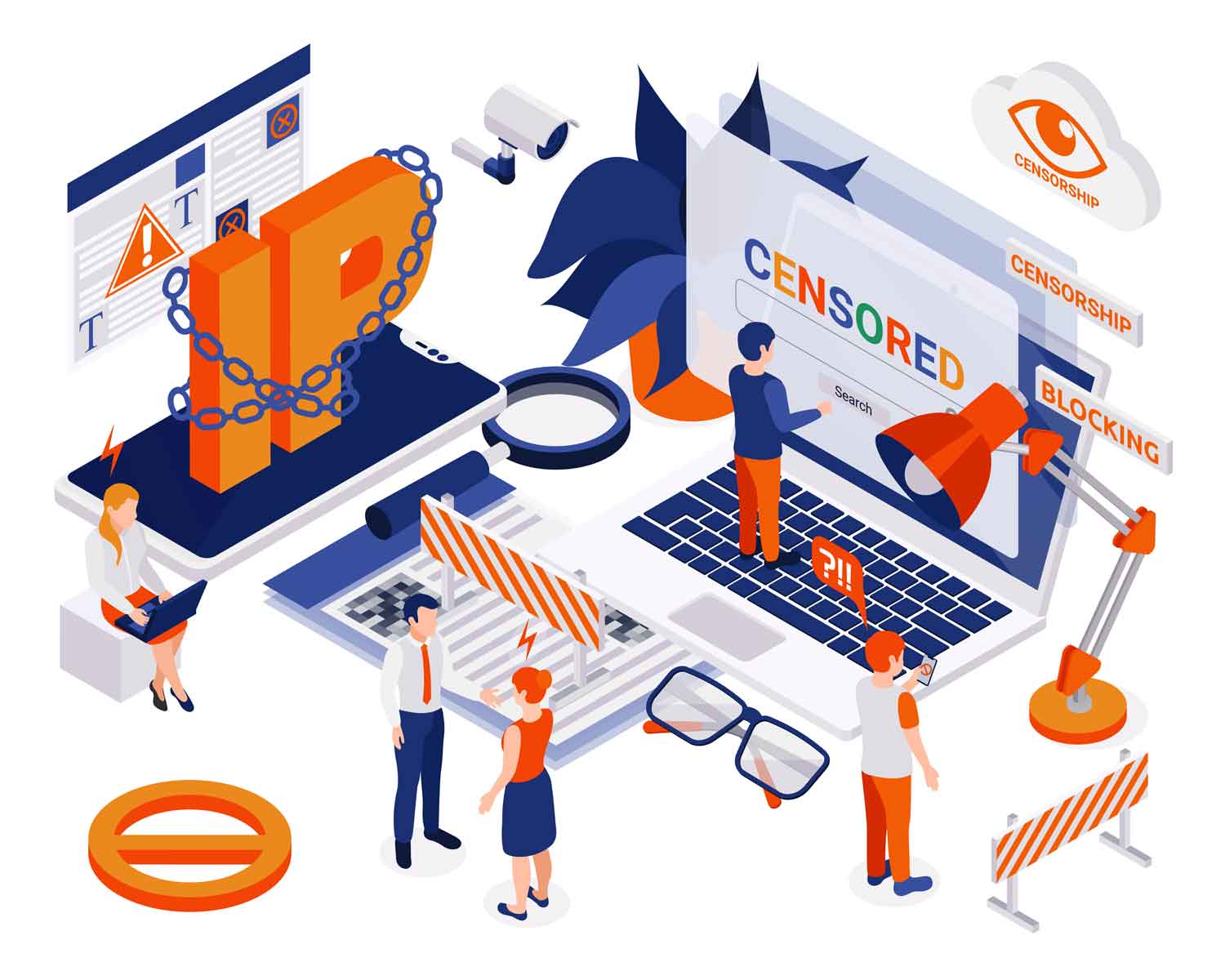Internet law, in essence, refers to how legislation principles govern the general usage of the web. Also known as cyberlaw, it doesn’t really define stability or solidity in its course. Instead, it incorporates various regulations from various traditional aspects, such as contract or privacy law, that apply to the internet.
In general, the internet law will include the laws related to –
- Website creation.
- Usage of trademarks in the online segments.
- The working process of internet service providers.
- Interlinking between web pages.
- Resolve conflicts regarding domain names.
Aside from the regular websites, these regulations would be applicable while you’re downloading free content from a torrent platform like ipiratebay as well.
What Should You Know About The Internet Law?
Most web users generally have a vague idea regarding internet law. Hence, to help everyone out, we have outlined five essential aspects of the same in this section. Keep reading till the end to know more.
What Are The Categories Of The Internet Law?
The usage of the internet is considerably censored in various conservative countries, such as Iran, China, Saudi Arabia, etc. Nonetheless, aside from such extreme censorship, the world of the web is generally categorized in four separate ways. These are –
- Architecture (it refers to the technological limitations of how the internet, including filters and search engines, should be used.)
- Laws (it’s all about the regulations that a country, and its residents, ensue to mold their online behavior and management-related aspects.)
- Marketplace (marketplace laws generally incentivize the creativity, ethical behavior, and self-regulation of online marketers.)
- Norms (these usually fill up the gaps left by the core internet laws and focus on less-pressing matters like making inappropriate comments.)
What Are The Policies Of Online Marketing?
Like the usage of the internet, online marketing has its own set of policies too. These rules usually focus on the opposing sides of advertising and deceptive promotional content. While the context of ambiguous marketing can differ from one another, the regulations can apply to the following points –
- Purchasing positive website reviews.
- Making incorrect statements about services or items.
- Falsely labeling a product as “all-natural.”
- Stopping phony reviews through gag clauses.
- Using people’s billing addresses or credit cards without authorization.
- Providing others with consumers’ information without their consent.
- Disguising advertisements to make everything seem like a part of the website content.
What Is Intellectual Property In Internet Law?
The internet laws regarding intellectual property primarily focus on protecting an original and unique copy written by a writer or a creator. These legislations entail the following principles as a whole –
- You must not take trademarked or copyrighted content without the creator’s consent.
- Make sure to receive a formal acceptance letter before hiring a ghostwriter for your cause.
- Plagiarism needs to be avoided no matter what, even if you are working on “article spinning.”
- You cannot copyright the code of your website.
- Ask for the consent of the photographer before taking or using their images on your blog or for other purposes.
- Online piracy must be avoided.
- Consult with a lawyer before using the names of your competitors as a part of your AdWord marketing ploy.
How Do Internet Laws Take Care Of Online Defamation?
Both federal and state defamation laws tend to govern both written and spoken defamation online. Hence, make sure to keep the following aspects in mind if you are working on such a case –
- You have to prove that the claim was harmful, false, or negligent if you want to win a libel (written defamation) case.
- An opinion isn’t considered as libel or slander. However, if it’s mixed with manipulative comments or untruths, it’ll be directed as defamation.
- You can use the truth of an incident to defend yourself from libel or slander cases, with exceptions, of course.
- In some cases, libel can be redacted or removed from the online forums depending entirely on the situation.
How Do The Online Privacy-Related Internet Laws Fare?
Free speech and privacy often get at odds with one another, which, in turn, creates a sense of unwarranted censorship. However, your privacy, such as the content of your website, the consumer’s information, etc., is protected to some extent through legislation. If someone crosses the line, you have the right to sue them immediately regarding the same.
Here are some of the laws that govern the aspects of online piracy –
- The Computer Fraud And Abuse Act.
- The Children’s Online Privacy Protection Act.
- The Gramm-Leach-Bliley Act, and
- The Health Insurance Portability And Accountability Act (HIPPA).
Final Thoughts
Internet censorship can be a pretty touchy subject. Hence, it’s crucial to underline how it works, the related facts, and find out its core principles. We have shared a decent amount of information regarding the same in this aspect. However, if you still have any queries, be sure to let us know through the comment section.









